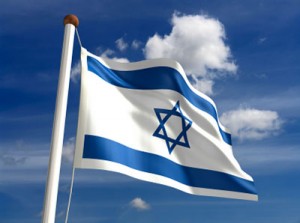 The rousing success of two Persian novels published in Hebrew this year � the first to ever appear in Hebrew � indicate a thirst among Israelis to better understand Iranian society.
The rousing success of two Persian novels published in Hebrew this year � the first to ever appear in Hebrew � indicate a thirst among Israelis to better understand Iranian society.When the Hebrew manuscript of the Persian novel "My Uncle Napoleon" crossed Jonathan Nadav's desk at Xargol Books, the small but highly regarded Israeli publishing house, the editor was skeptical.
His doubts lay not with the modern Iranian classic, or the translation by then unknown translator Orly Noy � Iraj Pezeshkzad's 1973 novel is a captivating satire of Iran under the Shah, and Noy is, in Nadav's words, "simply a gifted translator."
The editor worried about readers' reactions. As Israeli Prime Minister Benjamin Netanyahu�threatens a preemptive strike on Iran's nuclear facilities and paints the Islamic Republic as a second Nazi Germany, "all most Israelis know about Iranians is that they have mustaches and nuclear bombs," Ms. Noy later said.
But Xargol decided to take on the manuscript, and Mr. Nadav's bet paid off. "My Uncle Napoleon," first published last summer, was one of the publishing house�s most successful books in 2012, and is already in its second edition.
Noy's translation of Iranian writer Mahmoud Dowlatabadi's "The Colonel " was published that same week by Am Oved, a leading Israeli publisher and partner of Xargol, and received rave reviews. The two are the first Persian novels ever to appear in Hebrew, and they have opened a window for Israeli readers to the rich culture of contemporary Iran at a time when little other than fear and aggression are shared between the two countries.�
Noy was born in Tehran and left with her family during the Islamic Revolution in 1979. Raised in Jerusalem, she went on to become politically active on the Israeli left, working with NGOs committed to Israeli-Palestinian peace.
Noy doesn�t see focusing on translation as a departure from her political work. "I'm not a literary type," she said. "I see translation as part of my political activism. To translate is a way to give depth to the one-sided characterization Israelis have of Iran, to counter, even if in a small way, the demonization of people as if they had no past, no history, and no culture."
Noy couldn't have chosen better books to introduce Israelis to Iran. "My Uncle Napoleon" follows the mishaps and sexual escapades of an upper-class family ruled by a tyrannical uncle during the Allied occupation of Iran in the Second World War. The Uncle Napoleon of the title, so named because of his obsession with Napoleon Bonaparte, turns his extended family upside down to reveal imagined British conspiracies, while the novel's unnamed narrator tries to fulfill his love for his cousin, Uncle Napoleon's daughter Layli.
Described in a review by writer Azar Nafisi as "a testament to the complexity, vitality, and flexibility of Iranian culture and society," the novel is a cultural icon. "Uncle Napoleonism" has even become a part of Persian slang as a term for the Iranian penchant for conspiracy theory.
"The Colonel" takes place on a single rainy night in the early days of the 1980-88 Iran-Iraq war that followed on the heels of the Islamic revolution. The novel follows the destinies of one of the Shah's high-ranking army officers and his children, all of whom, in their own ways, are the revolution's victims.
Author Mahmoud Dowlatabadi�s stark depiction of the aftermath of the overthrow of the Shah prompted the Iranian government to forbid publication of "The Colonel" in Iran.� Even as Noy's translation, and an English rendition recently published by Tom Patterdale, are winning praise abroad, the Persian original has yet to appear in print.
Noy believes the novels hold important lessons for Israeli readers. In particular, Noy sees the unflinching condemnation of the Islamic Revolution's failed ideologies in "The Colonel" as model for Israeli criticism of their own grand ideology, Zionism.
"How far are you willing to go in the name of an ideology that you once believed in passionately, until you discover in yourself the strength to stop and say 'this is not what we intended'? I think there are few Israelis who have the strength that Dowlatabadi demonstrates in this book," Noy says.
Haggai Ram, a professor at Beer Sheva's Ben Gurion University who wrote the afterword to Noy's translation of "The Colonel," says the books' success is due to a long-standing Israeli fascination with Iran. He argues that the similarities between the two countries are what capture Israelis' attention.
"Iran fascinates Israelis, and fascinated them before the 1979 revolution," Professor Ram said. "There's a great thirst to know things about Iran that are not related to the nuclear issue, or to the so-called fanatic Ayatollahs. These are two peoples who have established nation states in the heart of the Middle East and both countries � Israel and Iran � are non-Arab enclaves in the heart of the Arab Orient."
By The Christian Science Monitor
The Iran Project is not responsible for the content of quoted articles.










